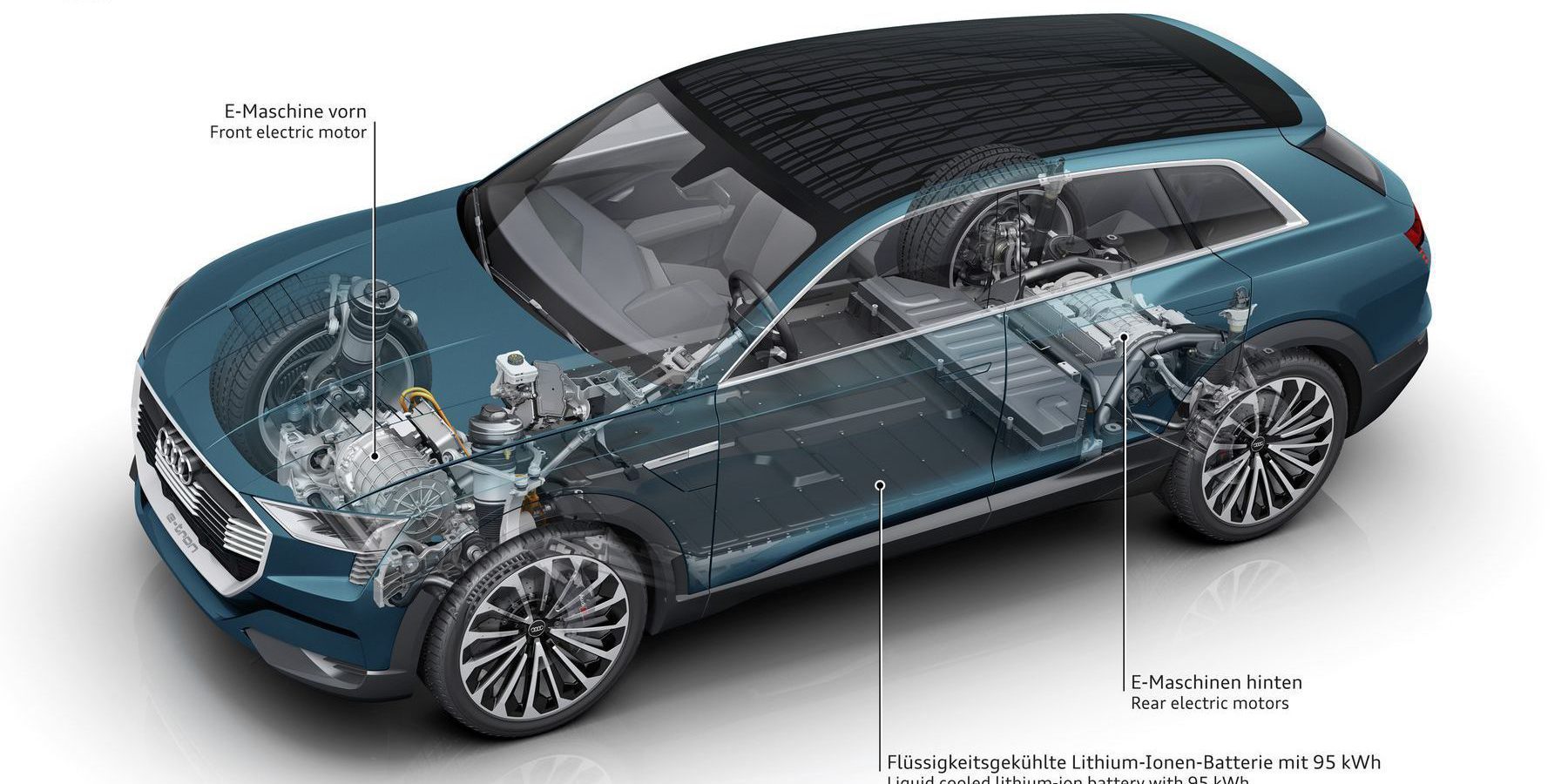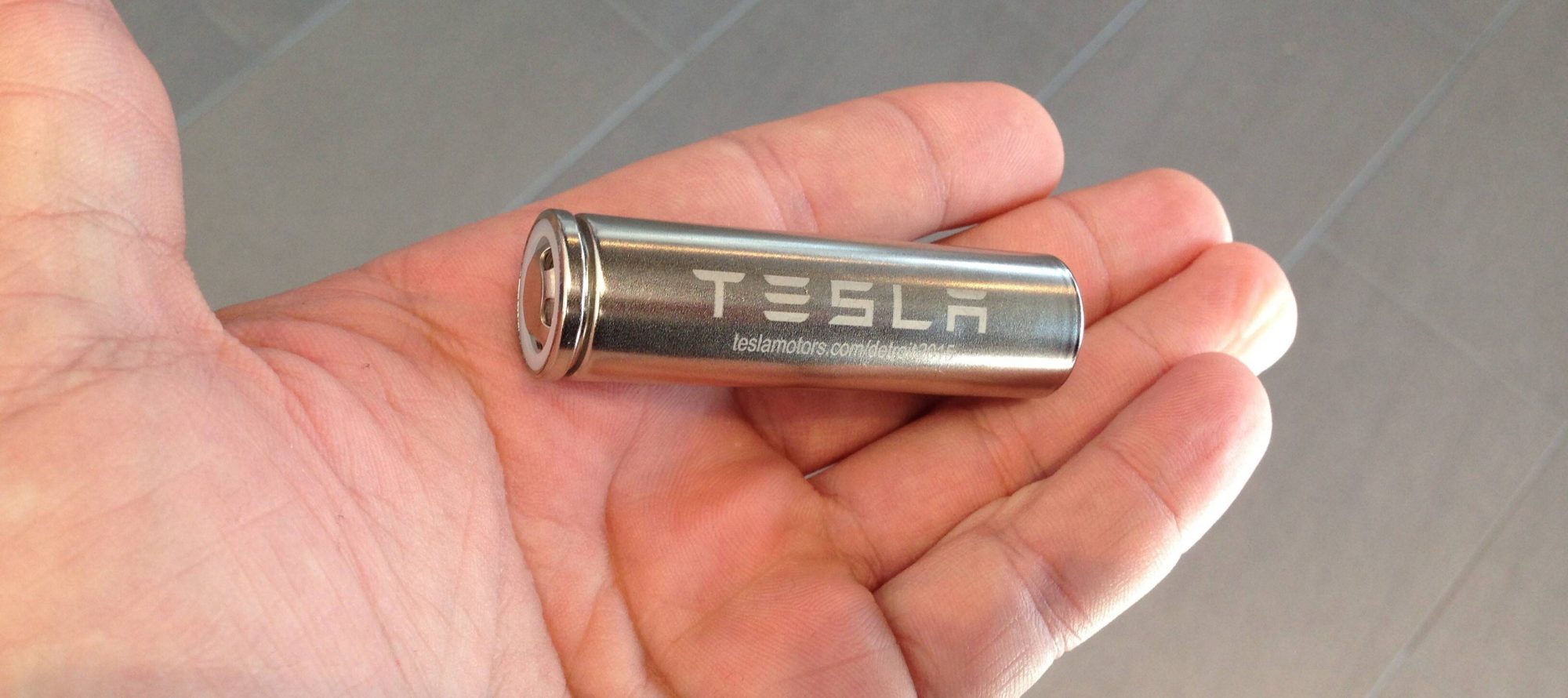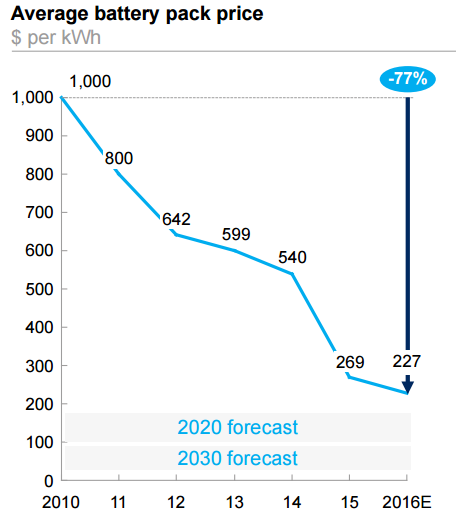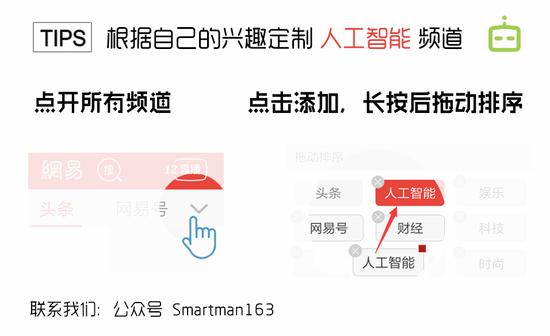(Original title: Audi says that the cost of power batteries is as low as 100 euros/kWh. Is Tesla's advantage no longer?)

The power battery industry has a consensus on the issue of cost: Only when the cost of the battery is less than $100/kWh, full profitability of pure electric vehicles becomes possible. Before that, electric vehicles in certain market segments will "continue to lose money." Recently, Dr. Peter Mertens, Senior Vice President of Audi Research and Development, revealed that Audi's battery procurement cost has reached 100 Euro/kWh (114 US$/kWh). The Tesla advantage that has grown from battery cost advantage has disappeared.
Audi has announced its electrification strategy and it is expected that Audi's first pure-electric SUV e-tron quattro will be available by the end of 2018. Mertens accepted an interview with German media last week. When talking about the battery cost of Audi's electric vehicles, he said:
“We adopted a high-to-low strategy because this market segment (the electric vehicle market) has a large Audi potential customer base. Currently, the cost of this model (e-tron quattro) battery is about 100 Euro/kWh. Only after the cost is significantly lower than 100 Euro will this market become profitable."
The amount of information is very large. First, Mertens agrees with the basic consensus of the power battery industry that $100/kWh is the profit and loss node, so it is only “profitable†after “the cost is significantly lower than 100 Euroâ€. In fact, the cost of an Audi e-tron quattro battery of 100 Euro/kWh has been incredibly low.

Dr. Peter Mertens, senior vice president of R&D, Audi
What is the battery cost of Tesla, the leader in the electric vehicle market? In October 2013, Tesla announced that it would build the super battery factory Gigafactory. CEO Elon Musk said that the capacity of the plant will reach 35GWh by 2020, which will exceed the sum of the global battery capacity in 2013. Tesla's battery cost will be as low as $100/kWh.
And so on, Audi's current cost has been as low as $114/kWh. Has Tesla no longer had the cost advantage or even fell behind?
The truth is that, according to the initial plan, Gigafactory will start production in January 2017; however, because of the good sales, Tesla started the production of battery packs in October 2015, which is one step ahead of schedule. More than a year. By January 2017, the new 2170 battery cell jointly developed by Tesla and Panasonic has been put into production. In addition, Tesla has increased Gigafactory's maximum production capacity of 35Gwh in 2020 to 150GWh, and Gigafactory's construction progress is also two years ahead of schedule.
As a result of this, in April 2016, Tesla’s vice president of investor relations, Jeff Evanson, stated that Tesla’s battery pack cost had dropped to US$190/kWh at the time. The so-called “battery pack†refers to battery packs. + Battery Management System BMS + Thermal Management Assembly + Packaging Materials. If the battery pack cost is calculated as 1.3 times the battery cell, the Tesla battery cost is about 146.2 U.S. dollars/kWh at that time.
As mentioned above, the new 2170 battery jointly developed by Tesla and Panasonic has been put into production at the Gigafactory earlier this year. At the same time, Gigafactory is still continuing to expand its construction scale. This year Tesla Panasonic has invested billions of dollars. According to a recent Gigafactory promotion video played at the Tesla Store, thanks to the application of new processes, technologies, and Gigafactory's economies of scale and manufacturing efficiency, Tesla's battery cost has dropped by another 35%. That is, 146.2 × (1-35%) = 95 US dollars / kWh, the corresponding battery pack cost is 123.5 US dollars / kWh.

Tesla 2170 battery cell
Given that the Gigafactory has not yet been fully completed, the battery pack cost of the first Model 3 to be mass produced tomorrow may be slightly higher than US$123.5/kWh. At the same time, Audi's current battery cost is $114/kWh, and the corresponding battery pack cost is only $148/kWh. Is the gap between battery pack costs so small?
We may wish to analyze, Audi's parent company Volkswagen Group announced the construction of its own "super battery factory" earlier this year, VW Group's previous hybrid vehicle battery power source for its own small battery factory + external supply, that is to say, There is no "scale effect" in Audi's means of reducing battery costs. In addition, prior to the announcement of the electrification strategy, the Volkswagen Group invested very little in the research and development of power batteries.
In contrast, Tesla, in 2016, the Tesla-Panasonic alliance has topped the global power battery capacity list (the other two in the top three are China's power battery companies BYD and Ningde times). In addition, due to the pioneer of electric vehicles The historical factors, Tesla has been a large investment in the development of power batteries, March 22, the International Battery Research and Exhibition will be awarded the annual battery innovator award to Tesla. According to Kurt Kelty, Tesla’s chief battery scientist and senior director of Tesla’s battery supply chain and business development, “Everyone knows that we are not a company focused on battery chemistry. That’s not why we’re winning. The real reason is we Successfully achieved the commercialization of cutting-edge technology.†In fact, this is Musk's guiding ideology for emerging technologies: Do not pursue PPT indicators that cannot be commercialized, and all inputs are mass-produced and cost-oriented.
Then introduced a comparison. Prior to this, GM revealed that the battery cost of its Chevrolet Bolt electric vehicle was US$145/kWh. The battery in the Chevrolet Bolt comes from LG Chemicals. In addition to GM, LG Chem's customers include Hyundai, Chrysler and Lucid Motors. In addition, LG Chem also released its own 2170 battery after Tesla, which is expected to start production in 2020.

Despite R & D strength can not be underestimated, LG Chemical's battery cost is still up to 145 US dollars / kWh, the corresponding battery pack cost is about 188.5 US dollars / kWh, but in fact this cost index is not high.
Earlier this year, McKinsey released a research report on automotive power batteries, pay attention to the following figure, the report shows that the average cost of battery pack dropped from 1000 US dollars/kWh in 2010 to 227 US$/kWh in 2016. From the perspective of the cost curve trend, 2017 will continue to fall below US$200, which means that LG Chem’s US$188.5/kWh coincides with the industry average.
 However, since it is the "average battery cost," naturally leading companies have lower battery pack costs. For example, the Tesla Model 3 battery pack for mass production tomorrow will be between $130/kWh and $150/kWh, as for Audi batteries. The corresponding battery pack cost of 100 Euro/kWh is US$148/kWh. Believe it or not, anyway, I don’t believe it.
However, since it is the "average battery cost," naturally leading companies have lower battery pack costs. For example, the Tesla Model 3 battery pack for mass production tomorrow will be between $130/kWh and $150/kWh, as for Audi batteries. The corresponding battery pack cost of 100 Euro/kWh is US$148/kWh. Believe it or not, anyway, I don’t believe it.
 燑br>
燑br>
Dongguan Guancheng Precision Plastic Manufacturing Co., Ltd. , https://www.dpowergo.com